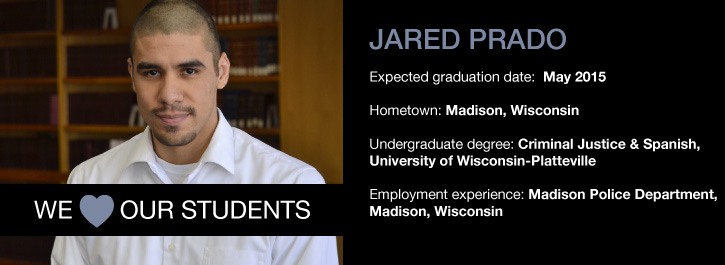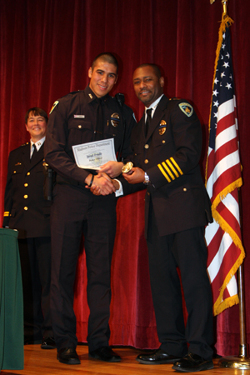
1. He is the change he wishes to see in the world.
“When you’re working patrol on the police department, every day is an opportunity to make an impact. Every contact you have, you’re representing this agency, you’re representing government. And there were a multitude of reasons why people didn’t trust us.
“My take on it was if I could individually earn somebody’s trust, that was also a connected trust to the agency. I liked that I always had to think on my feet as an officer, and I like that I was always on my feet. It’s important to me to stay active. But it really just came down to the connection I had with people, forging trust where there might not be any basis for it, but showing people that you too are human.”
2. He has a bias toward shedding light on bias.
“Talking about bias as a natural human tendency is important. I’ve been fortunate to work as a trainer with the police department’s Unconscious Bias Group, and still do, even though I resigned from MPD last January. The goal was originally to educate law enforcement, but our work has expanded to outside agencies. Wherever there’s interest, we go. In fact, another law student, Lola Bovell, and I have run trainings here at the Law School for clinical staff and for Office of Career and Professional Development staff. Through the trainings, I’ve also learned a lot about myself. There’s room for everyone to improve.”

Prado graduated from the MPD Academy
in 2011.
3. He doesn’t do anything partway.
“I worked full-time my first five semesters of law school and only resigned from MPD after some soul-searching. I just wasn’t getting what I wanted out of school, and I’d been neglecting my personal life. Getting acclimated my first semester full-time was definitely a surprise work-wise. But I’ve met and befriended a lot more people since I’ve been in school full-time. That’s an important part of the experience.”
4. He listens to his mother.
“My mom is one of the hardest working people I know. She’d have to be to raise a son on her own like she did. She taught me really valuable things: perseverance, manners — big manners! — and especially, compassion. Males in our society aren’t supposed to talk about feelings; we have to be tough, macho. But being a man isn’t really about that. It’s about just being a person supporting other people. My mom’s such a compassionate person, so I learned compassion through her example.”
5. He does his community proud. J Proud.
“I really found my identity in high school. I was a fan of hip-hop since I was in eighth grade, probably, but I’d never rapped before. Then, freshman year of high school, a friend urged me to record with a group of classmates. Our first session involved a turntable and a mic we shared. It was so old school that we recorded onto a cassette tape. After that, my friend dubbed me J Proud. Through music, I grew to embody the name: it gave me confidence to express myself in a way I never thought possible.”
Submitted by Tammy Kempfert on May 28, 2015
This article appears in the categories: We Heart Our Students